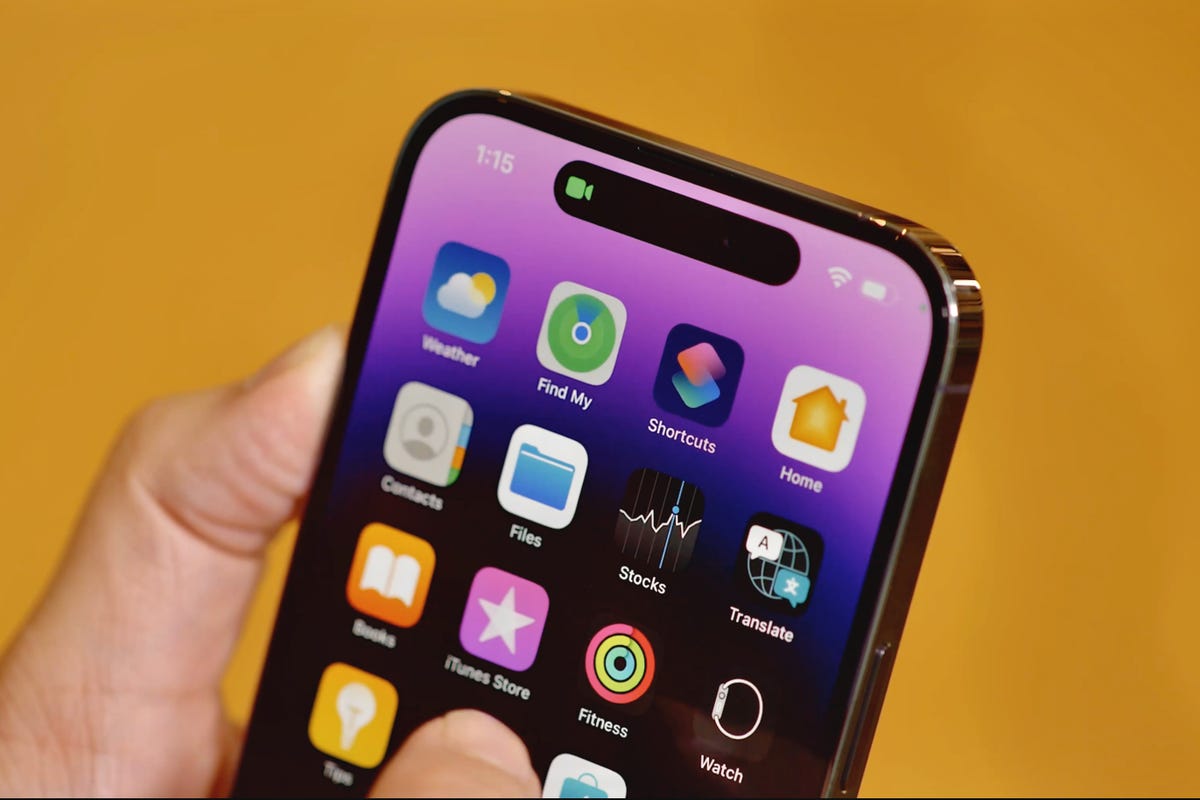When Apple introduced Dynamic Island, the curiously named feature drew a flood of opinions. Some said the name sounded like an odd tourist destination, while others said it lacked the finesse of other Apple feature names like AirDrop or FaceTime. Popular YouTuber MKBHD quipped in a post on Twitter that it was “the most Apple thing they’ve ever Appled.”
Whatever your thoughts on the name, the Dynamic Island has managed to win over some fans (apparently even some Android users too). The pill-shaped cutout, which first graced 2022’s iPhone 14 Pro and 14 Pro Max, replaced the much-maligned notch that housed the True Depth camera system required for Face ID.
Read more: Apple’s ‘Glowtime’ Event: How To Watch the iPhone 16 Reveal
Unlike the notch, which was a static physical cutout, the Dynamic Island is an area on top of the iPhone’s display, which serves as an interactive hub and shape-shifts depending on the context. Within the Dynamic Island, two discreet cutouts remain for the camera and sensors, but the surrounding area is an interactive canvas of sorts for various content.
Apple’s decision to add the Dynamic Island as a now-signature feature on the iPhone marked a departure from its rival Android phone makers. The latter opted to replace the screen notches on their devices with hole-punch cutouts for the selfie cameras. Through the Dynamic Island, Apple found a way to use the area around its cutout for system alerts, app controls, and tracking live activities, among other functions.

The Dynamic Island shows different icons and animations. During a FaceTime call, it shows a green camera icon on the left side.
When idle, the Dynamic Island is a fairly unobtrusive black area that takes up about an inch of screen real estate, which is smaller than the previous notch. Depending on what apps you’re using, any background activities running and iPhone system alerts, the Dynamic Island will change into one of three shapes: a long oval, a large pop-up window and a combination of medium-sized oval and circle.
When using a single app like Apple Music, it becomes a long oval and shows an album cover on one end and a waveform for the song being played. In this state, if you tap on the Dynamic Island, it’ll open the Music app to the current song. If you press and hold on the Dynamic Island, it’ll pop out into a larger window spanning the top of your iPhone with mini-playback controls. Likewise, if you receive a call the pill-shaped cutout lengthens to display caller information.
If you have two apps open at once, like the Music app and Apple Maps, the Dynamic Island will look like a lowercase letter “i” on its side. One of the apps, Maps, has its own medium-sized oval to show turn-by-turn directions. The second app, Music (in this case) is off to the right in its own circle — displaying the album artwork.

The form the Dynamic Island takes when receiving a call.
Because it integrates with third-party apps, the Dynamic Island can also show a real-time estimate for your Uber’s arrival as well as food delivery orders — and when you press and hold on the Dynamic Island, it’ll physically size up into a pop-up window to show that information.
The Dynamic Island also provides visual feedback for privacy indicators (such as when the microphone or camera is active), AirDrop file transfers, or Apple Pay transactions, among other system functions.
Here are some of the things the Dynamic Island can show:
- System alerts
- Turn-by-turn navigation with Apple Maps or Google Maps
- Contact information and call length for phone calls
- Battery percentage when your iPhone or AirPods are charging
- Find My Alerts
- Screen recording duration
- Cover art when playing songs from Apple Music
- Transit card payments
- Live sport scores
- Flight information
- Timer length
- Payments with Face ID
- Files sent with AirDrop
- Mute icon
- Live activities for services like Uber
The ability to dynamically change shape and display relevant content enhances the overall user experience. Since its launch, Apple has trickled down the feature to its base models which means the iPhone 15 and iPhone 15 Plus also feature the shape-morphing cutout in addition to the iPhone 15 Pro and iPhone 15 Pro Max. If you want to learn more about the Dynamic Island, read our iPhone 14 Pro review and our iPhone 15 reviews.




















+ There are no comments
Add yours